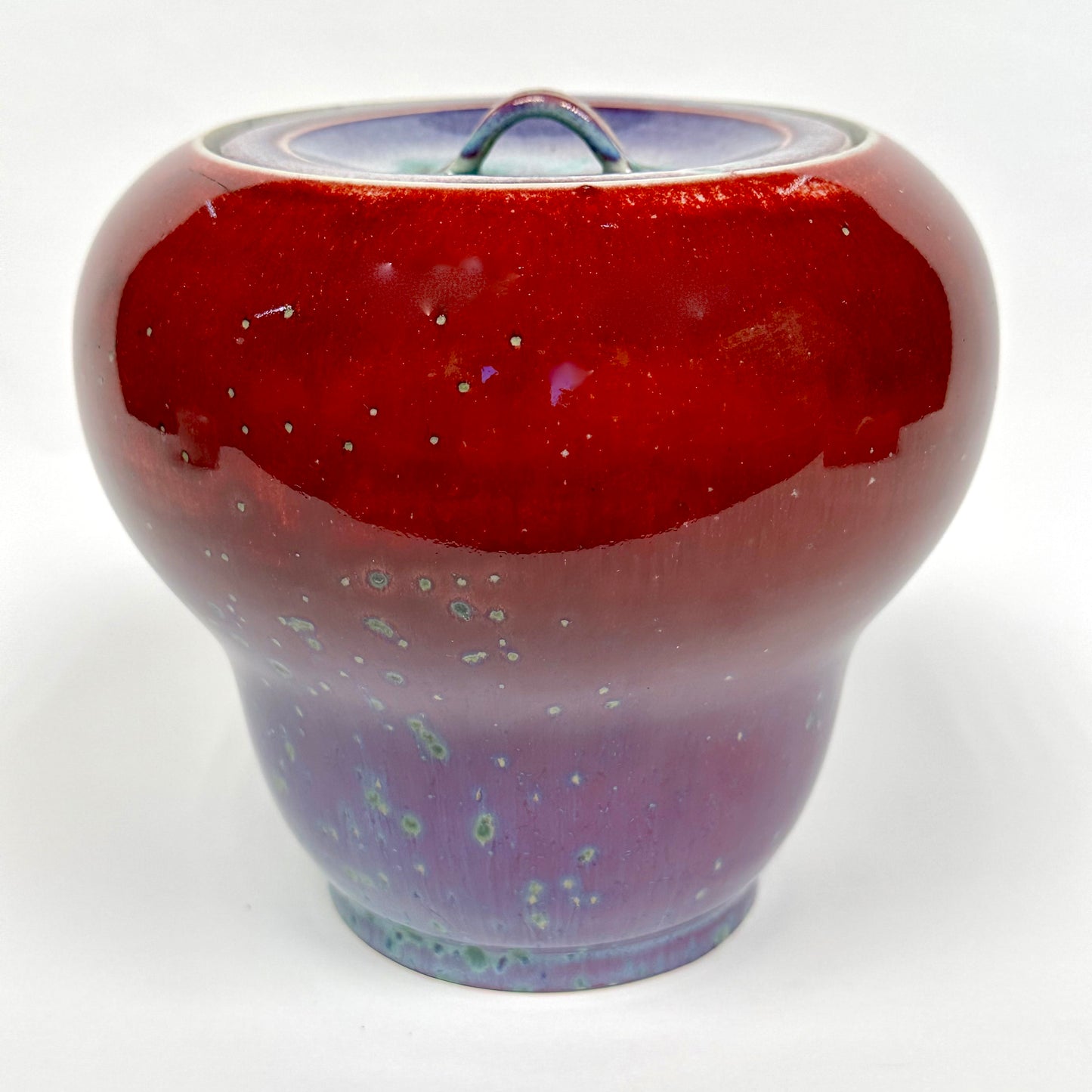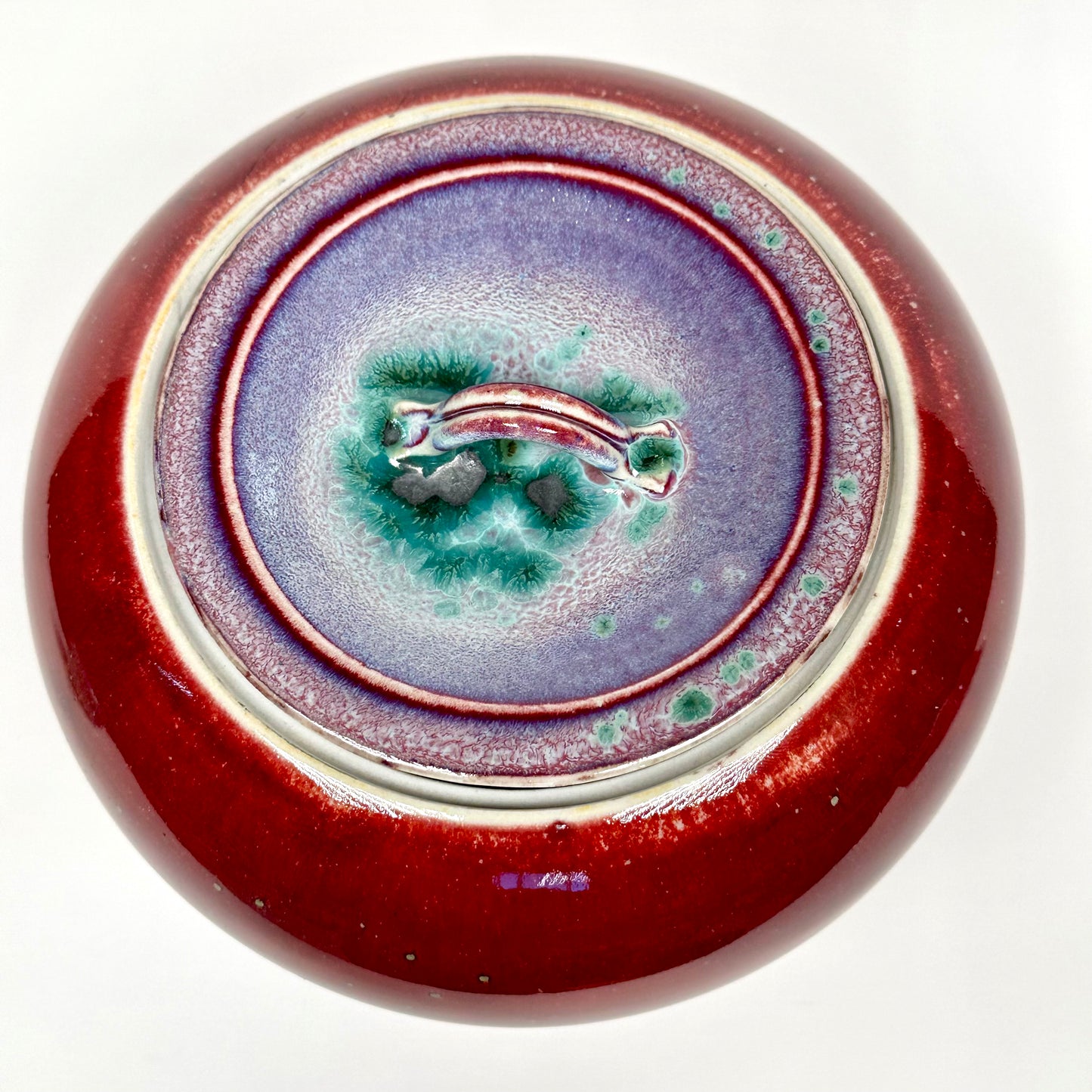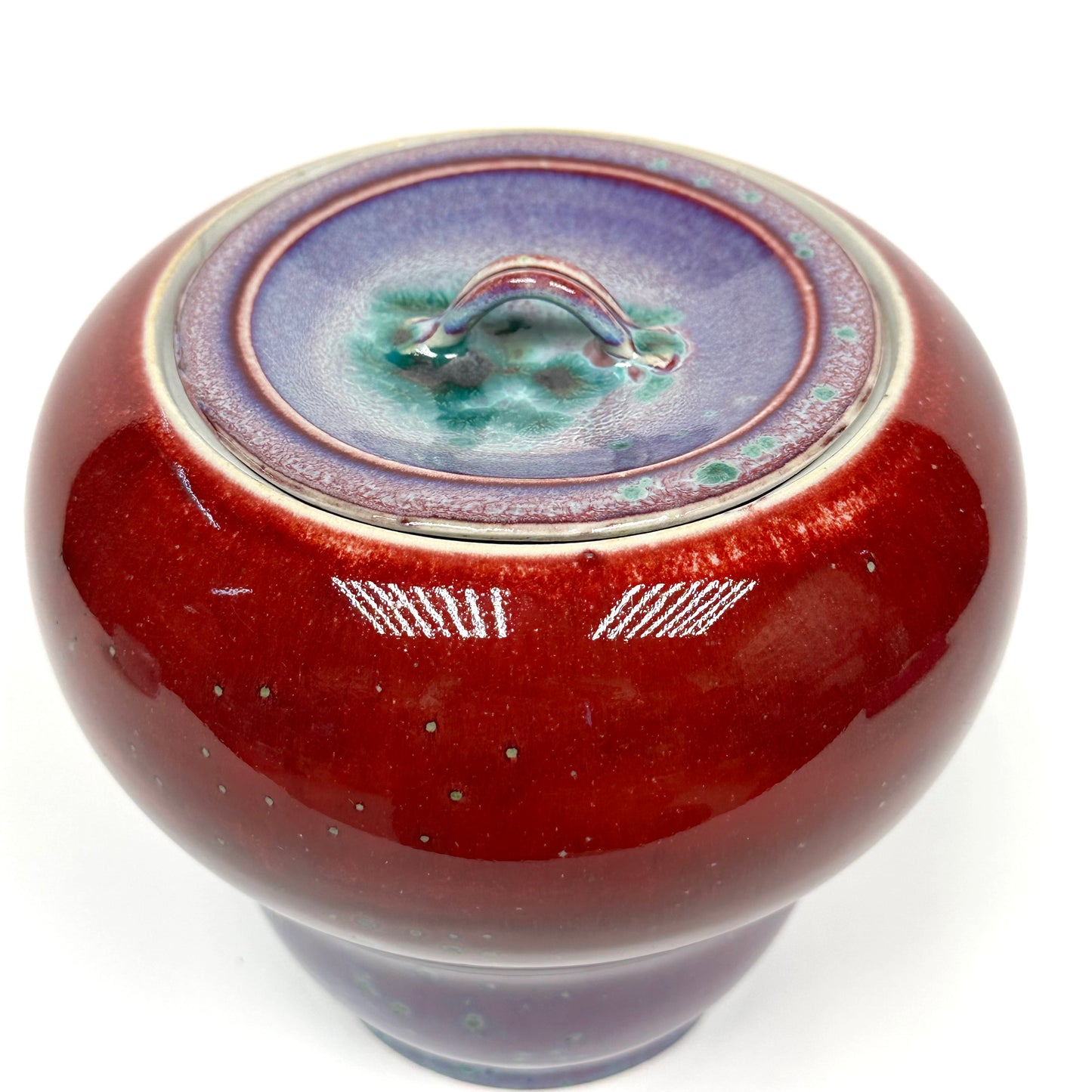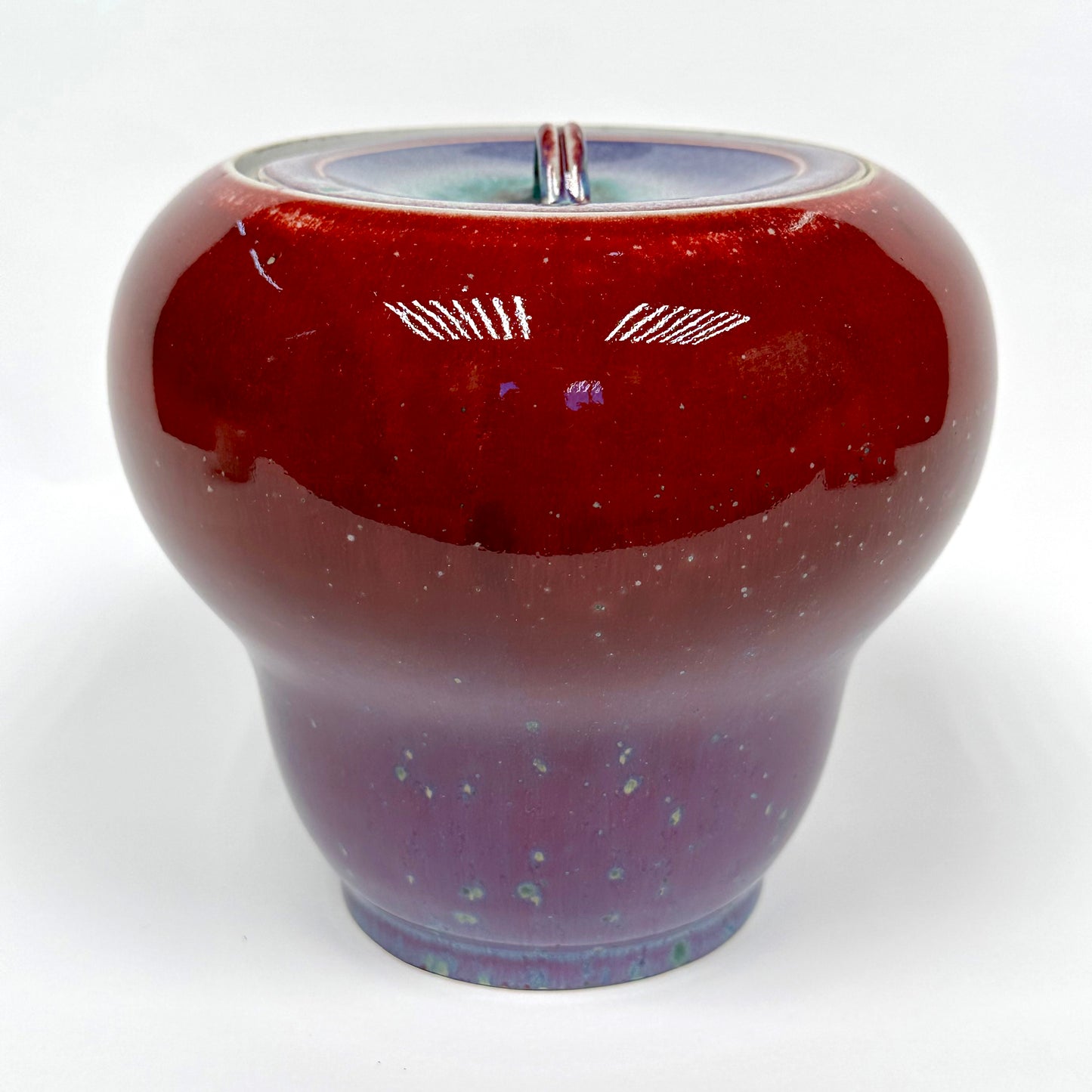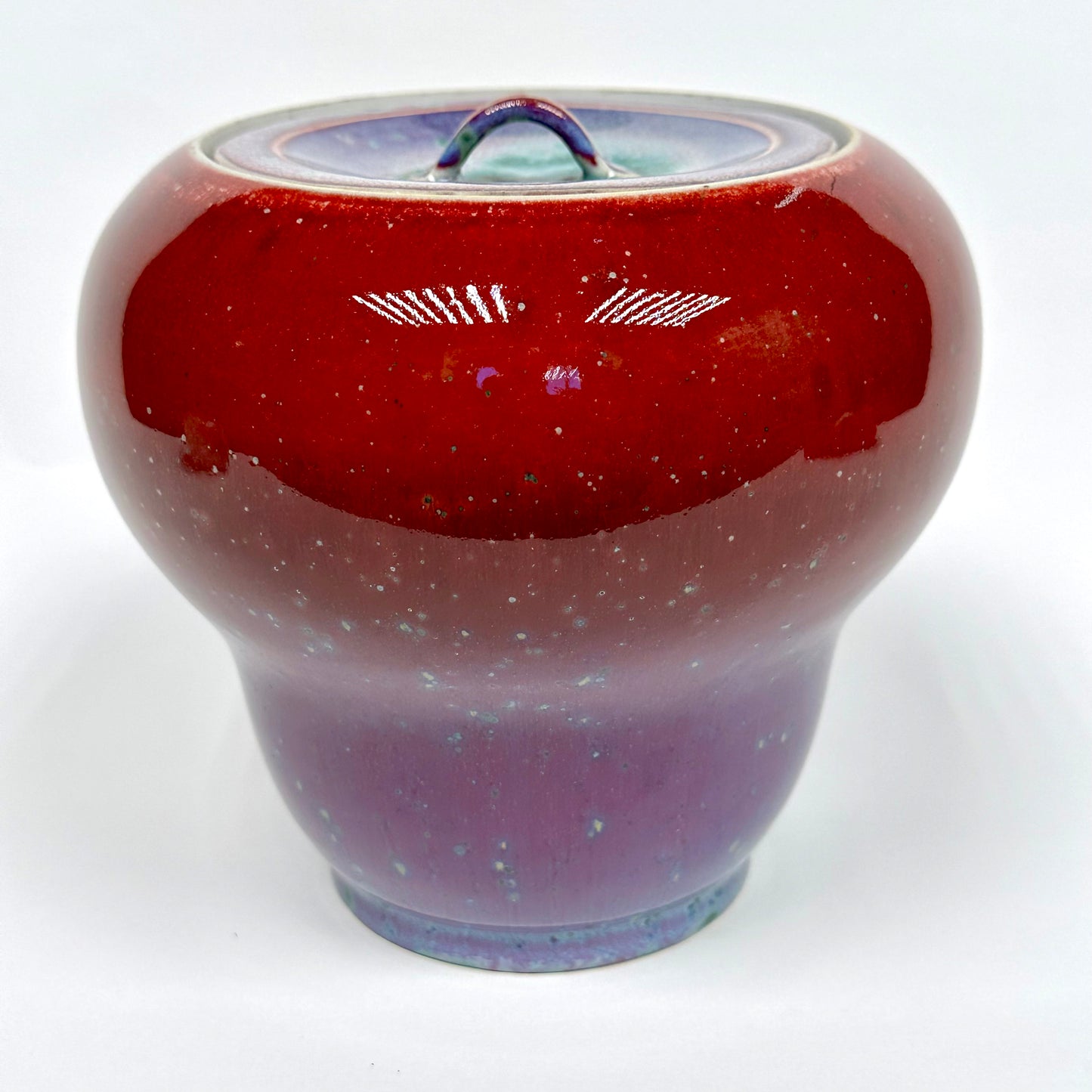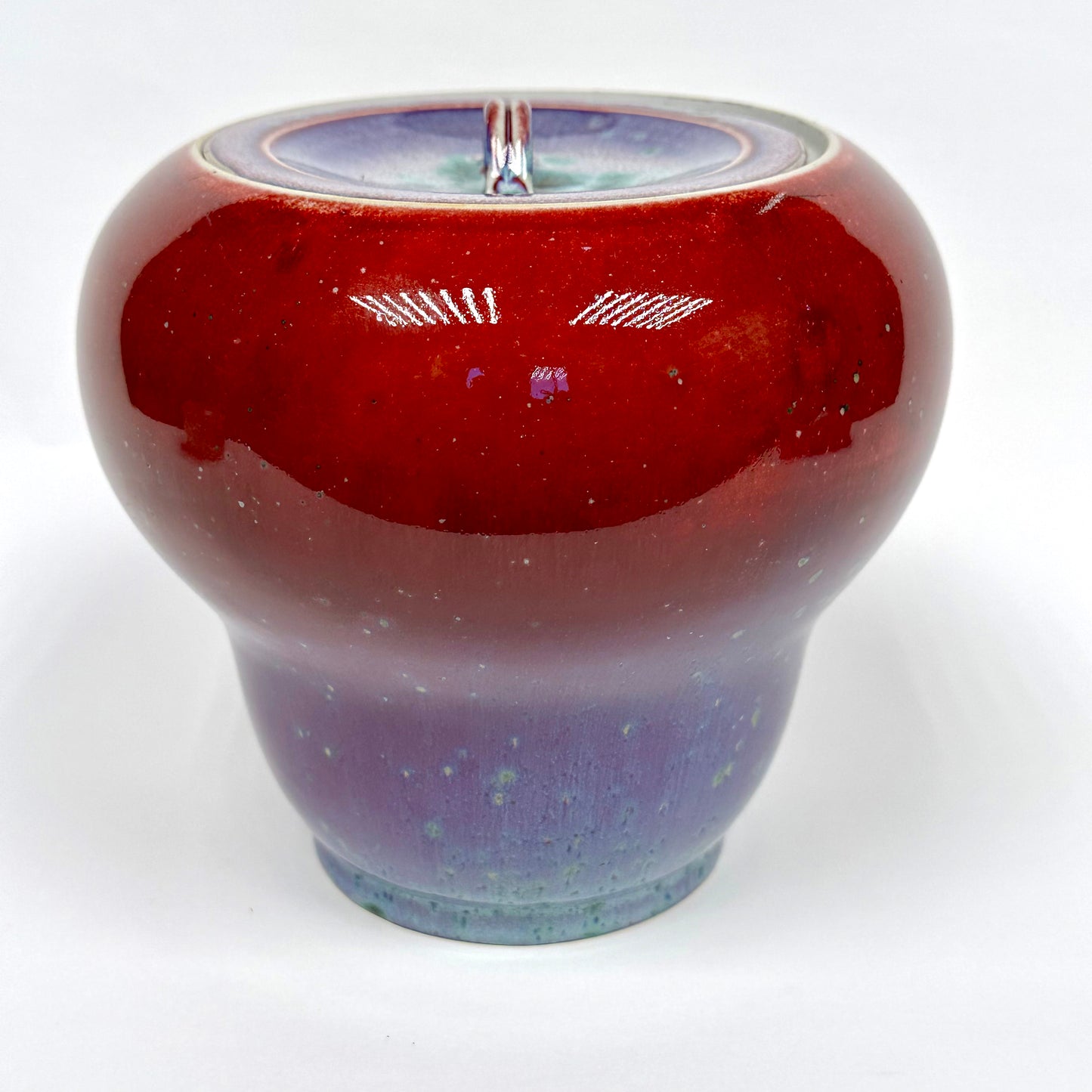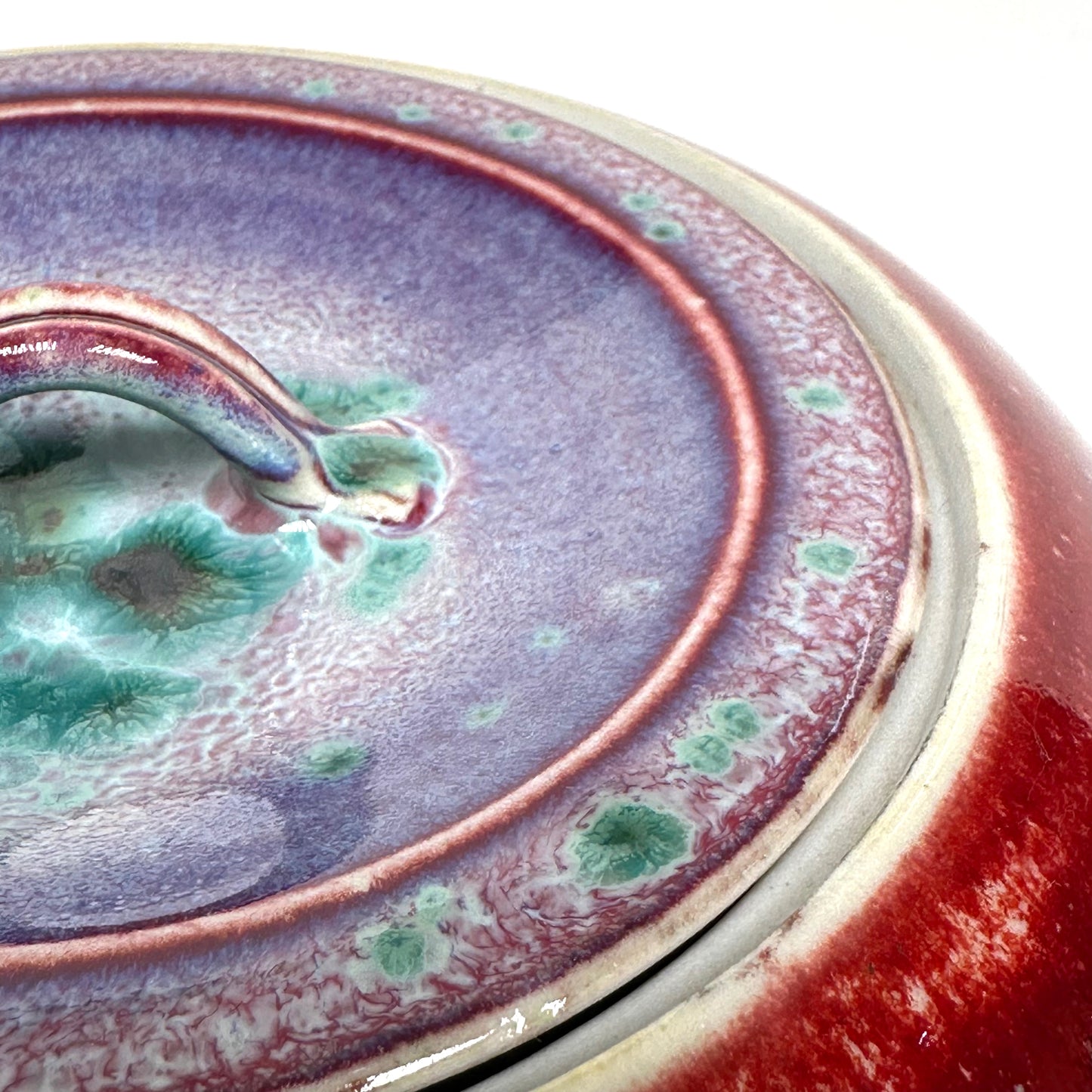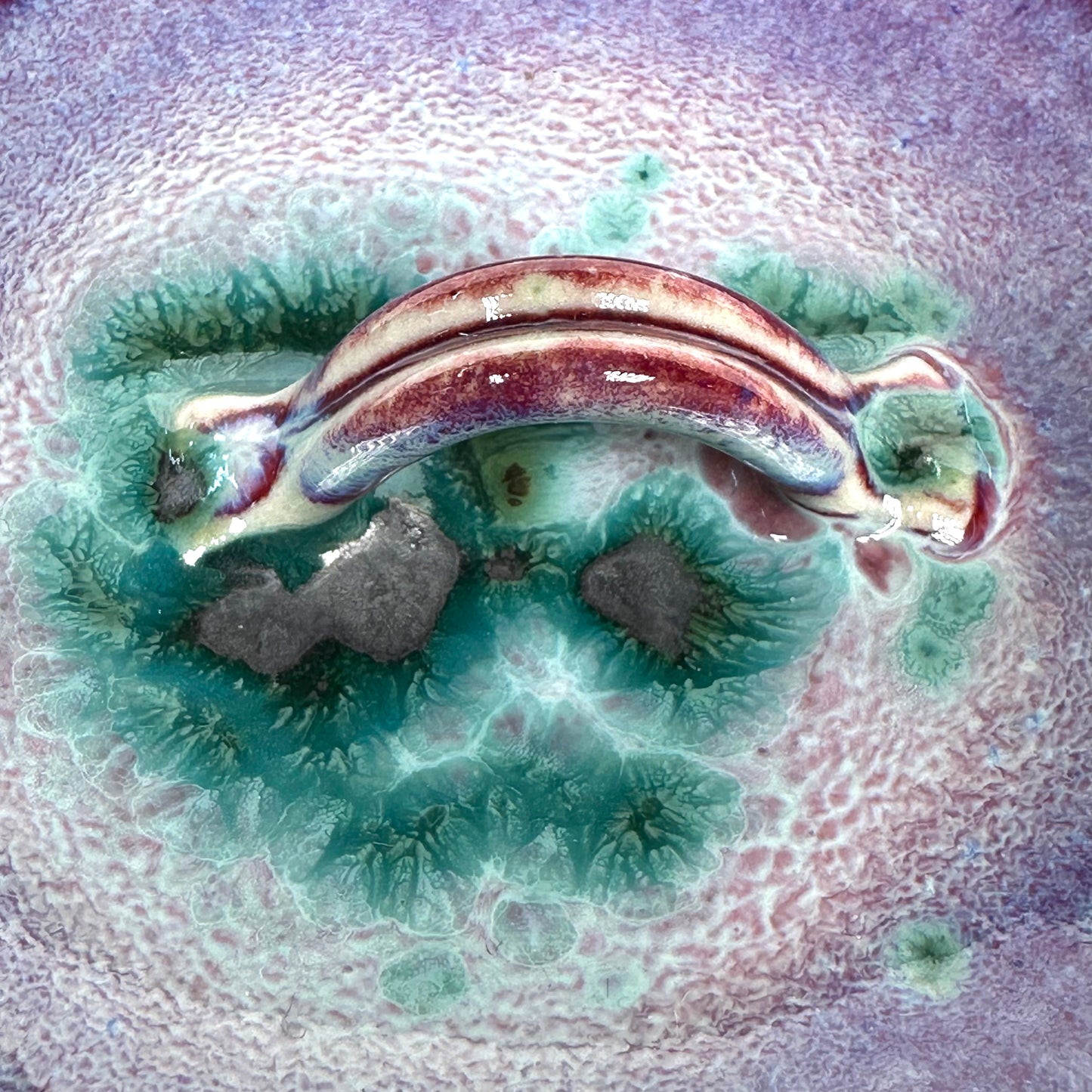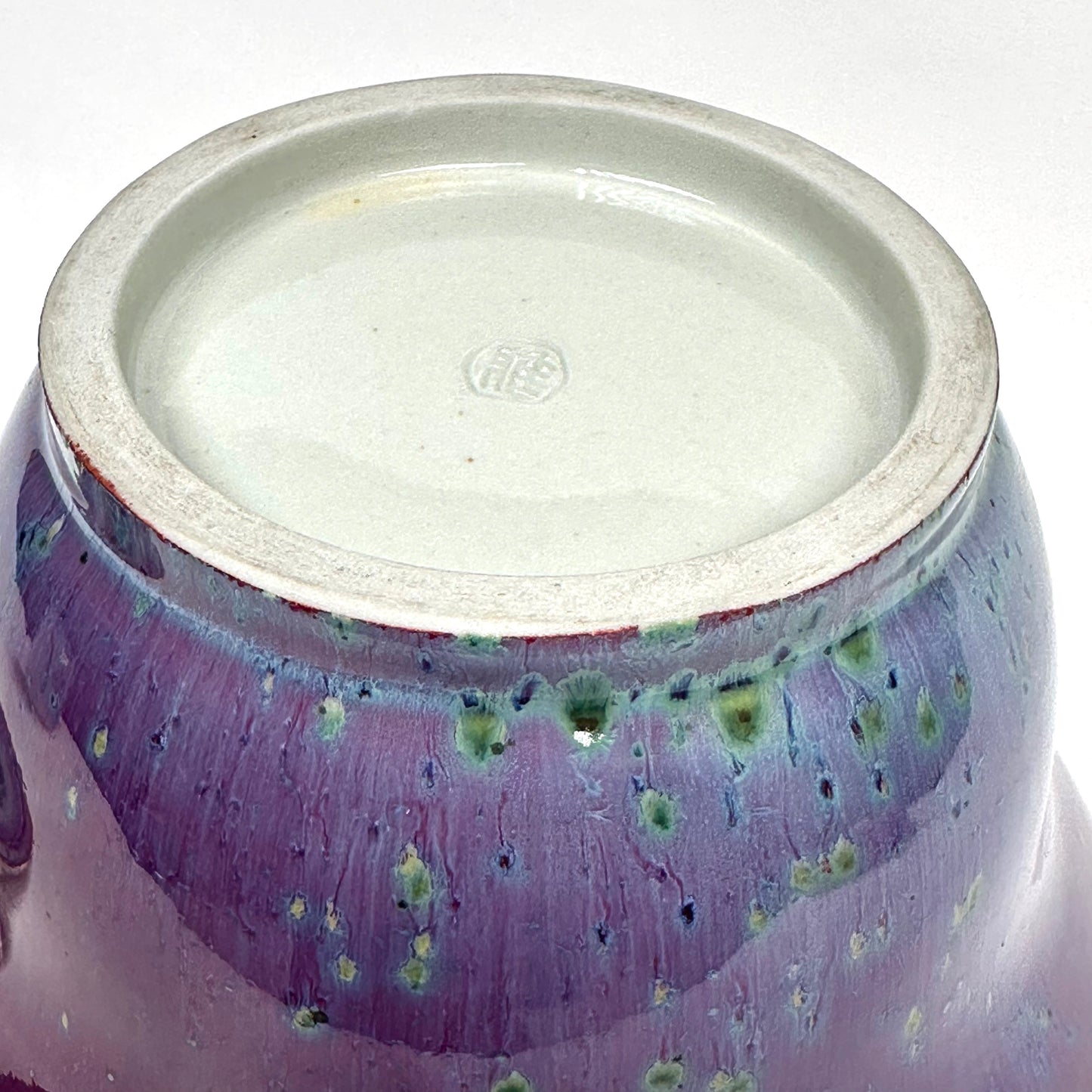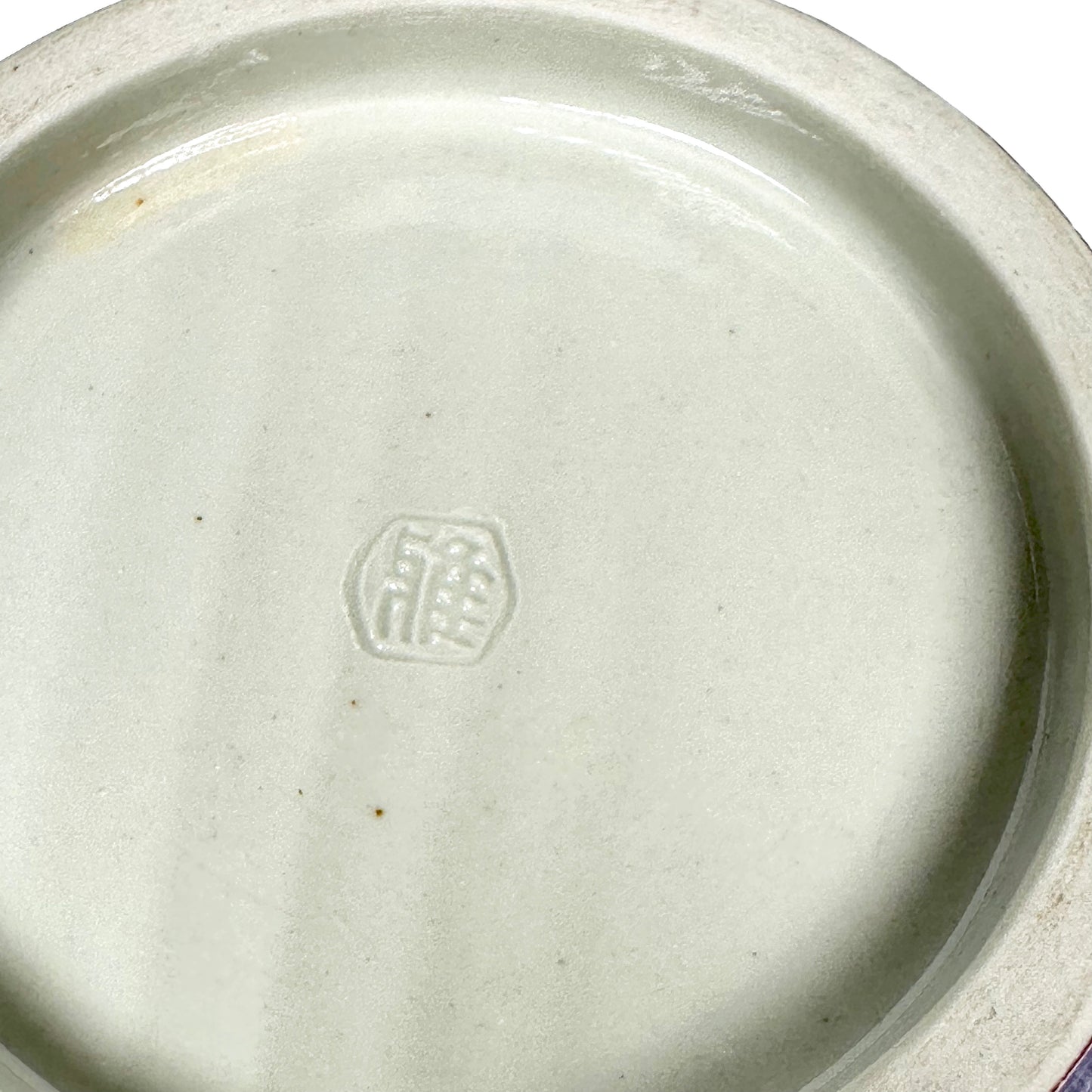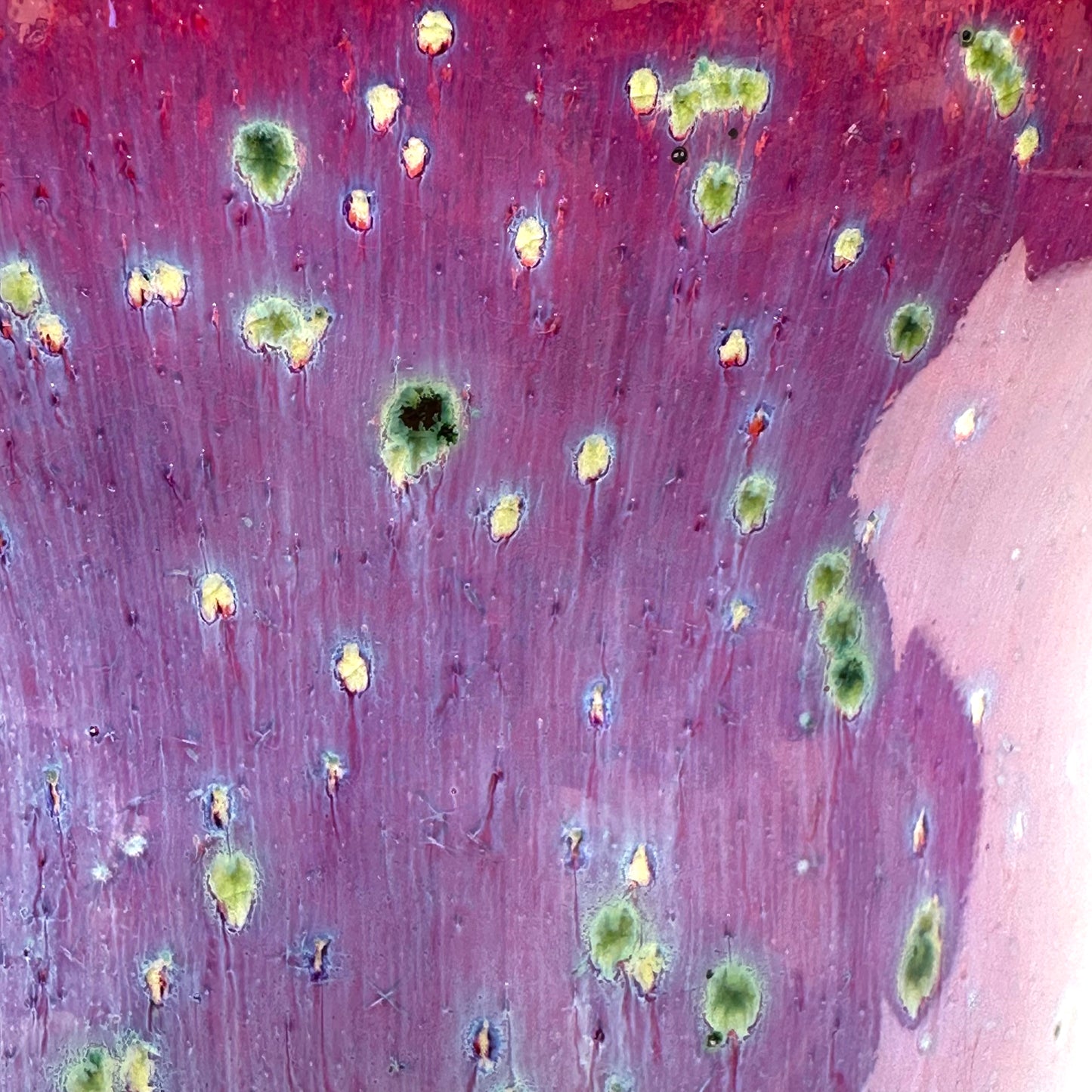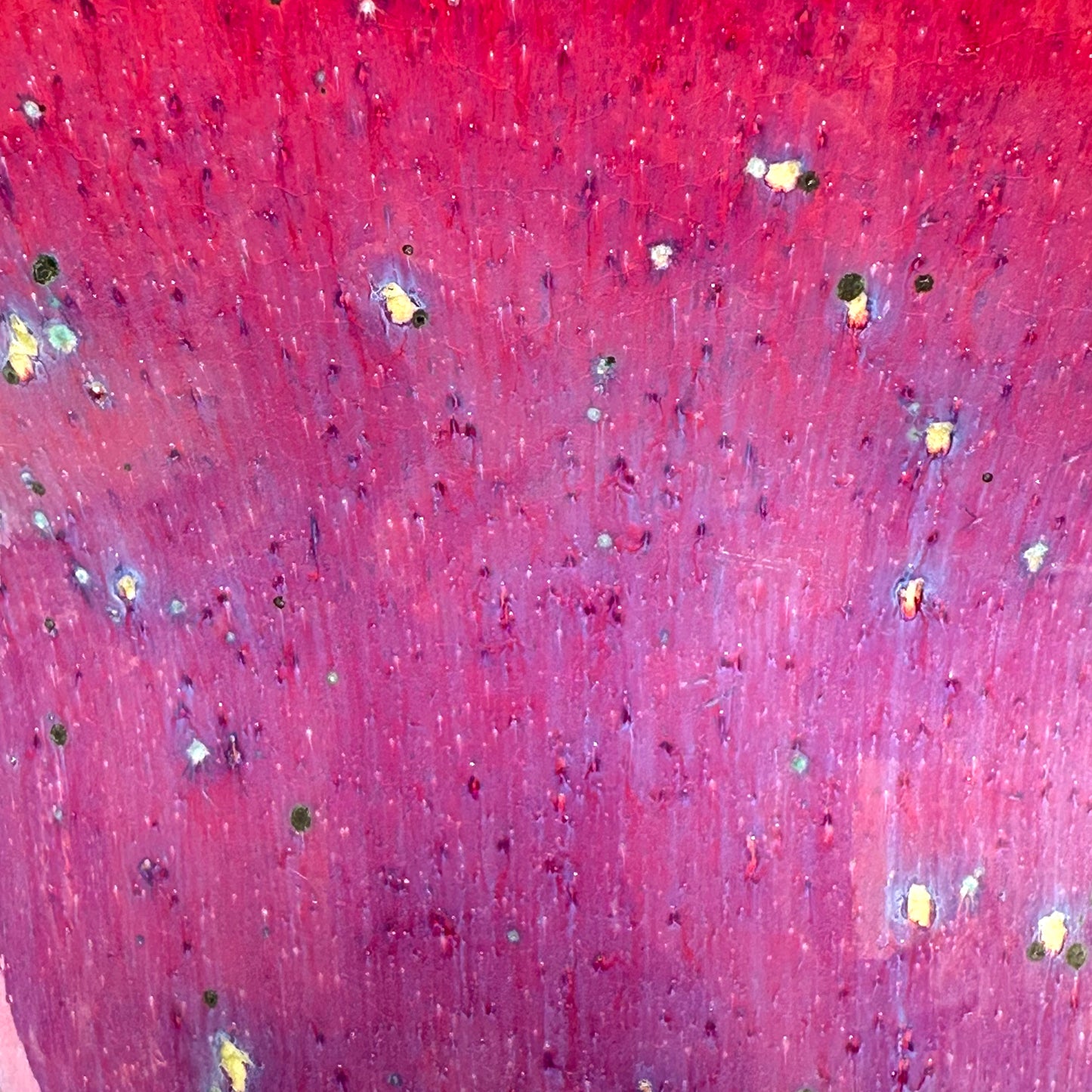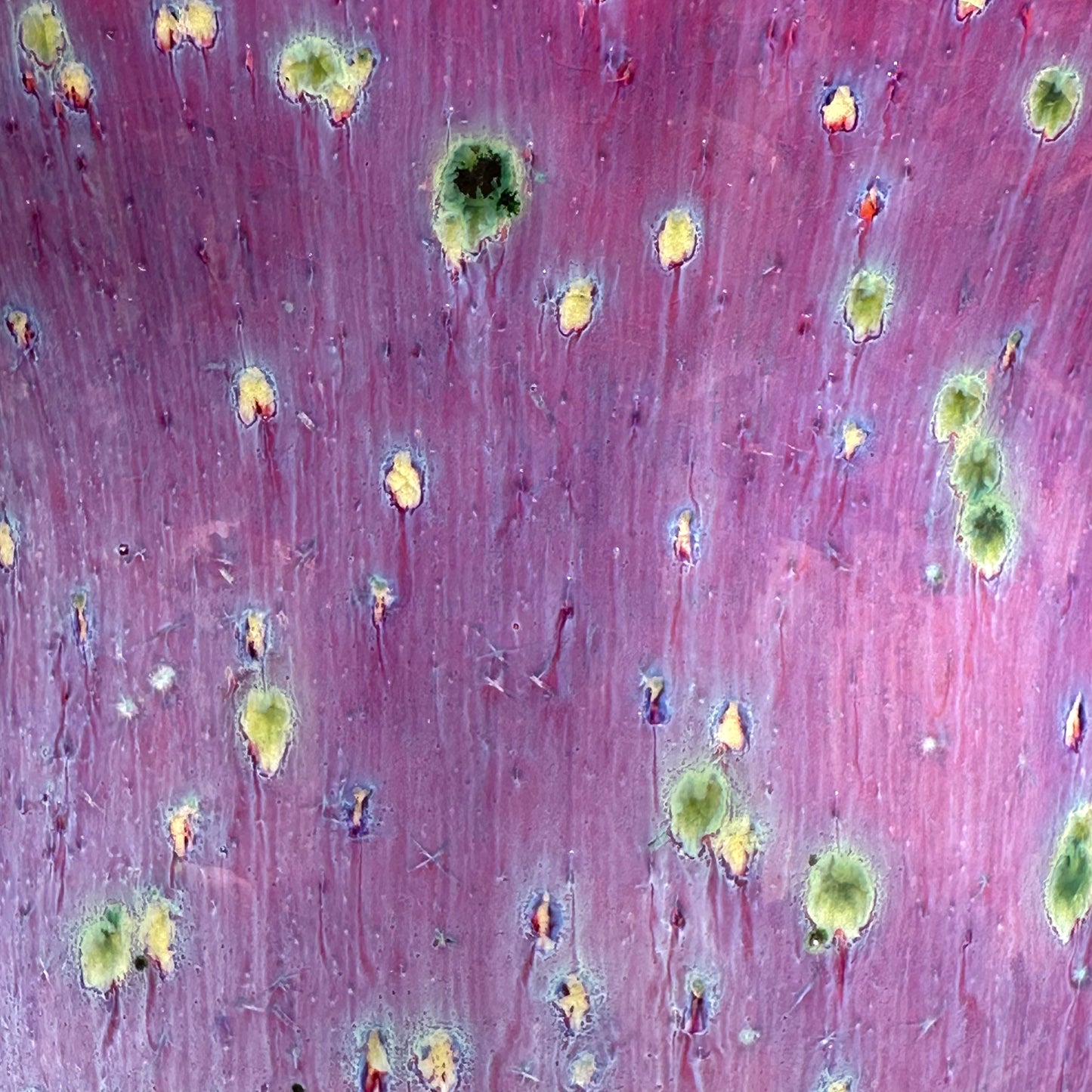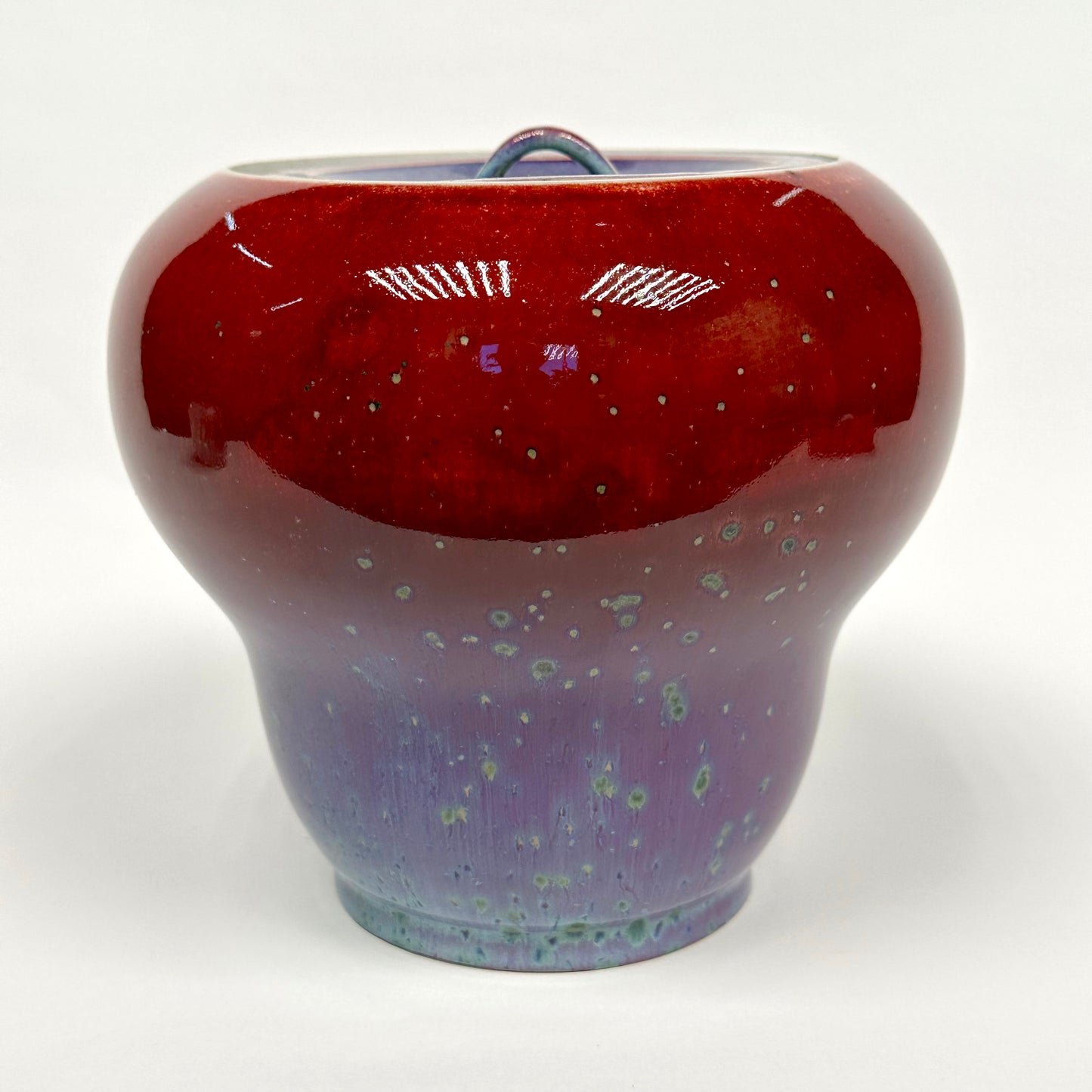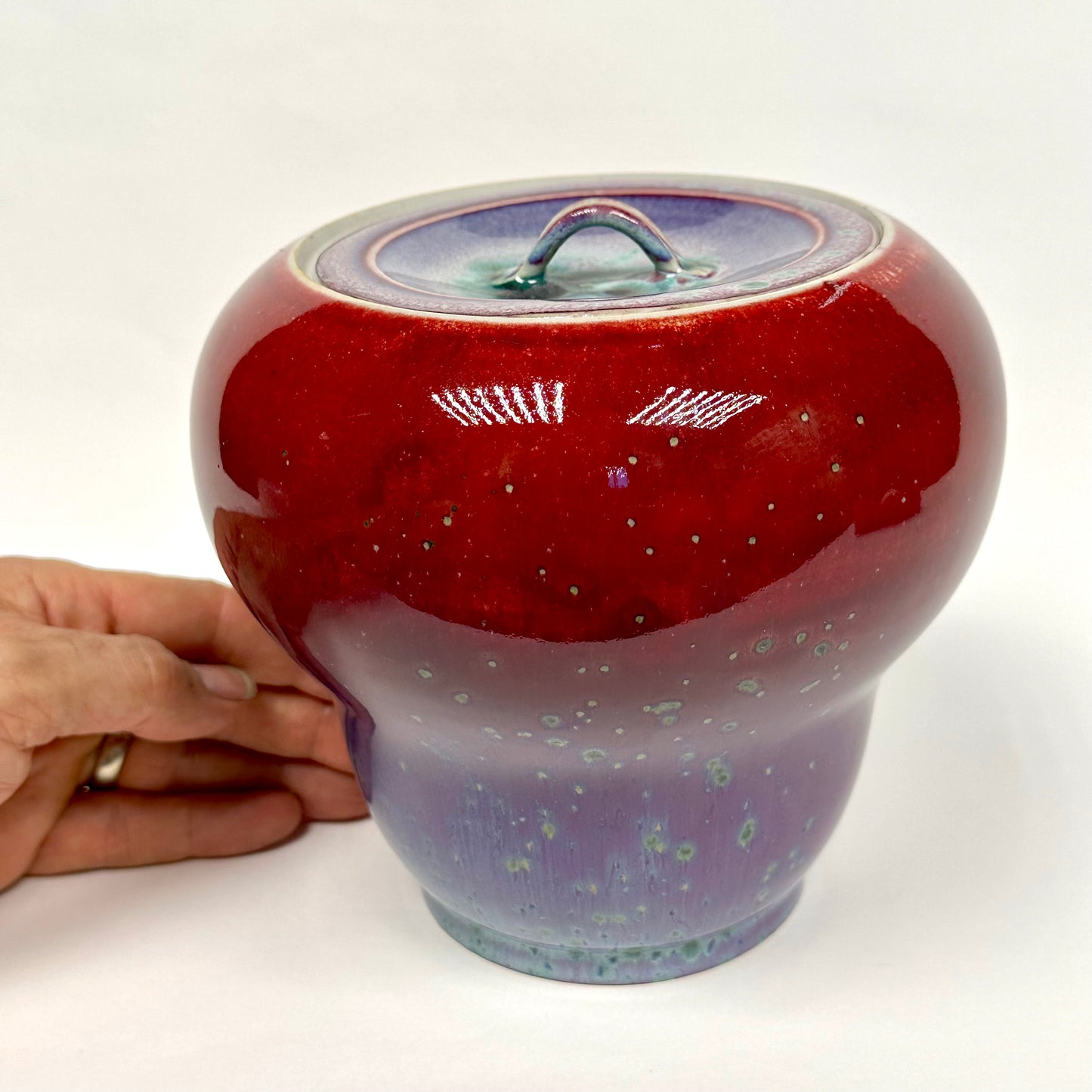Vintage Japanese Mizusashi by Matsuyama Gaei c1960's Peacock Glaze Tea Ceremony 6"
Vintage Japanese Mizusashi by Matsuyama Gaei c1960's Peacock Glaze Tea Ceremony 6"
Couldn't load pickup availability
This truly rare beauty was made in the highly renowned Matsuyama Gaei (雅英) family kilns in Hyogo prefecture during the mid Showa era c1960's. The Mizusashi is traditionally used in the Japanese Tea Ceremony as a vessel for cold clean water. This hand thrown pottery Mizusashi is decorated in the Peacock glaze (Kujakuyu - 孔雀釉) that the Gaei family made famous throughout Japan and internationally.
Though relatively contemporary, this is a piece of art that equals the creations of previous centuries in collectibility, craftsmanship and value - historic, cultural and monetary.
Artist's mark "雅" on bottom
Height = 6"
Diameter = 6.5"
Matsuyama Gaei 1st 初代 松山雅英 (1916-1963), 2nd or 3rd
After the outbreak of the Sino-Japanese War (1931-1945), the 1st generation Matsuyama Gaei went to mainland China as consul, where he was awed by the pottery he saw and took up studying the craft. In 1947, Matsuyama returned to Japan, where he built a kiln in Tsutano, Hyogo Prefecture. Under the guidance of Kiyomizu Rokube from Kyoto, Matsuyama began his rise as a pottery craftsman. They moved the kiln to Kamikajo Town in 1950, where he completed his yohen tenmoku (天目) glaze the following year and produced his kujaku Peacock glaze pottery all inspired by the Song Dynasty Jian glazing techniques from the 1100's.
In 1963, the first generation Gaei Matsuyama became ill and instructed his wife Tsutako in the art of Yohen Kujaku Tenmoku (copper transmutation glaze) before passing away. In the following year, Tsutako inherited the name of the 2nd generation Gaei Matsuyama and continued producing pottery including pieces that were collected by the Imperial Prince. She had many of her works displayed as personal exhibitions at art museums in France. Tsutako’s oldest daughter, Kazuko, was the successor of the 3rd generation Matsuyama Gaei and continued to produce pottery for 40 years until her retirement in 2017. Unfortunately, the Tsutano kujaku furnace and family home was raised in 2024 leaving only the legacy of the Gaei family works of art and memories.
